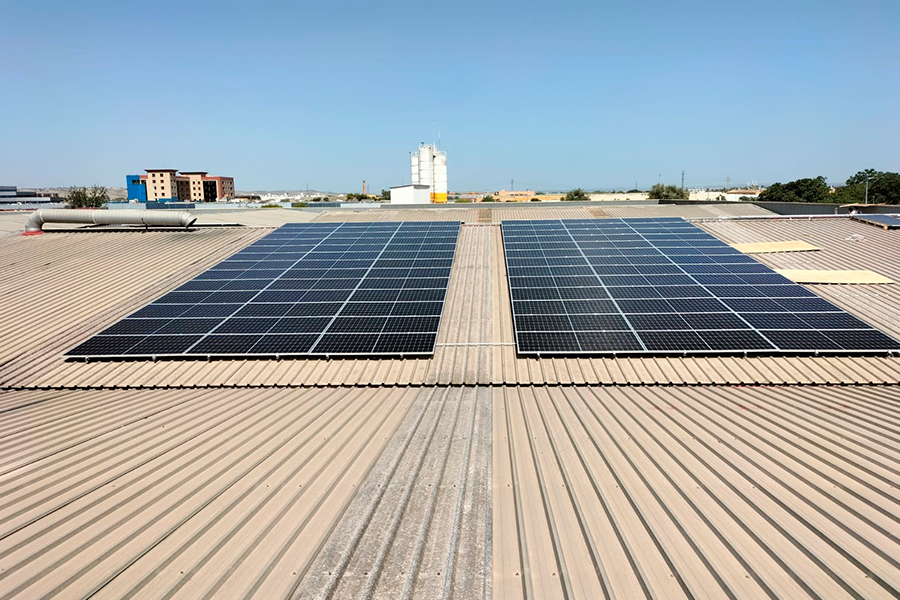Iberdrola España launches its first solar community in Seville, which will reduce bills of over 150 families
- The installation is located in the North district of Seville, on the roof of the Jaferauto garage.
- Local residents will benefit from the advantages of renewable self-consumption without the need for investment.

Iberdrola España has launched its first solar community in Seville at the Jaferauto garage. Local residents will benefit from the advantages of renewable self-consumption, including a reduction in consumption of up to 40%, without having their own installation or making any investment.
This form of community self-consumption allows users to share the 100% renewable energy generated from a single photovoltaic installation located a maximum of two kilometres from their home. Iberdrola España is making the investment of this plant located on the roof of the Jarefauto garage.
Thanks to this solar community, more than 150 families in the northern district of Seville will be able to participate in it and save on their electricity bills by consuming part of the energy produced by this plant locally.
The installation consists of 220 panels with a total power of 101 kilowatts, enough to produce around 157 MWh anually. This photovoltaic installation will prevent the emission of more than 860 tonnes of CO2 into the atmosphere over the next 30 years.
"This project is another step in Iberdrola España's commitment to enable all customers to enjoy the advantages of local self-consumption, without making any investment and enjoying the savings from the very first moment", says Borja Cañas Rodríguez-Rubio, Iberdrola España's Regional Sales Representative in Andalusia and Extremadura. He adds "at Iberdrola España we promote this type of innovative solutions that are committed to sustainability and which help the local economy".
"We are proud to be the first solar community in Seville. As a company and the people who work in it, we are proud to be able to be able to help both the community around us and the environment," says Juan Francisco Morilla, manager of Jaferauto.
Any user can calculate the economic and environmental savings and join the solar community of the Jaferauto garage through Iberdrola Solar Communities website. External link, opens in new window.
External link, opens in new window.
Boosting self-consumption
As a result of its commitment to self-consumption, Iberdrola España has improved the remuneration of its customers' surpluses. In addition, thanks to innovation in energy products, self-consumers with Iberdrola España plans can value their surpluses beyond the energy term, making it possible to have a bill of zero euros and now also benefit from the value of the surpluses in another home of the same owner.
The company leads the photovoltaic self-consumption market in Spain. As part of its commitment to accelerating the energy transition and developing new products to improve efficiency and energy savings, in 2015 Iberdrola España became the first company in its sector to integrate self-consumption solutions into its range of services.
The company has consolidated its position as the benchmark company with a 200% increase in its self-consumption portfolio by 2022. Through Smart Solar, Iberdrola España offers services for all types of customers, from domestic consumers to large industrial customers.
The collective self-consumption solutions developed by Iberdrola have made self-consumption available to any customer, whether or not they have their own roof, as currently in Spain more than two thirds of the population lives in high-rise buildings. Customers in this context also benefit from the Solar Plan, a competitive electricity tariff during the hours when there is no sun, which is when they need to consume energy from the grid, as during the day they self-supply from their own installation.
Self-consumption solar systems can save 30% on annual bills in the case of residents' associations; 50% for companies and businesses; and up to 70% in single-family homes. These savings are produced in three ways: the energy produced by the plant that the user does not have to buy, the compensation for surplus energy not consumed, which is fed into the grid, and savings due to lower taxes.